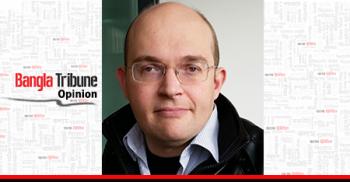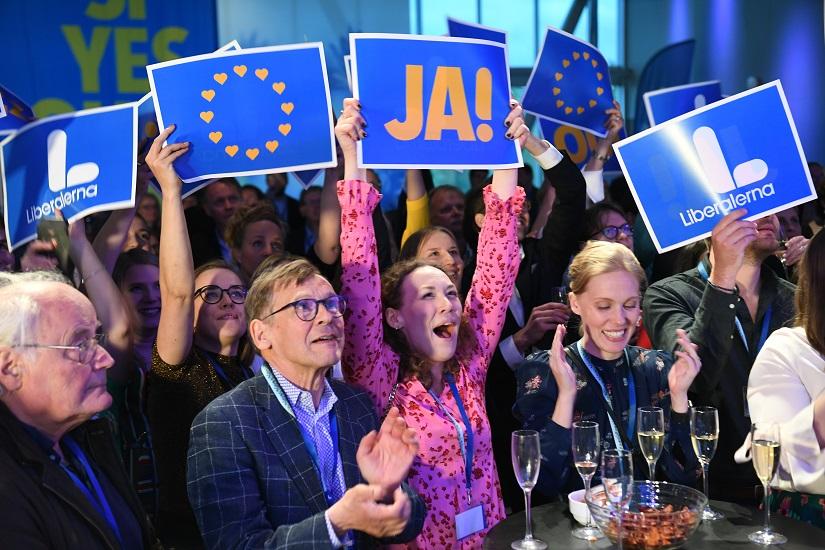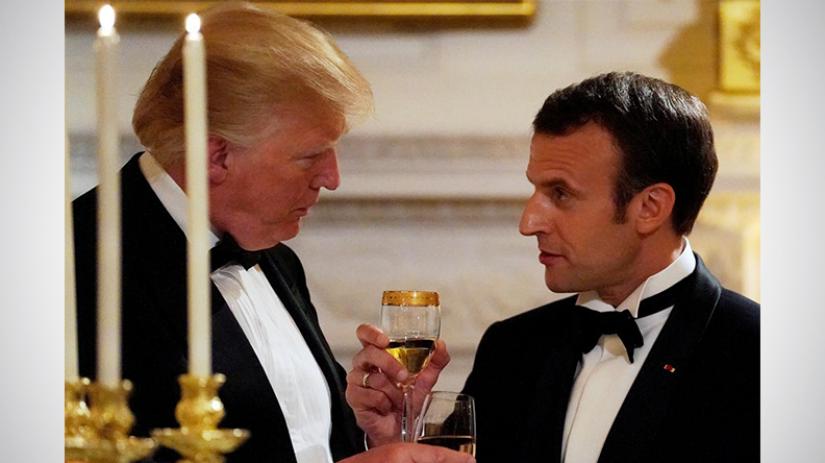 As indicators of how America's allies now feel about Washington after three years of Donald Trump, there are a few statistics more stark than those on how Germans think about relying on the US nuclear deterrent.
As indicators of how America's allies now feel about Washington after three years of Donald Trump, there are a few statistics more stark than those on how Germans think about relying on the US nuclear deterrent.
In a survey published this week, only 22% favoured continuing to rely on protection from US nuclear weapons, compared to 40% who wanted Berlin to cut a new nuclear protection deal with either Britain or more likely France. Almost a third – 31% – favoured Germany abandoning the concept of relying on nuclear weapons altogether, while 7% wanted something until recently even more unthinkable – that Germany should build its own atomic arms.
The results – published by German think-tank the Koerber Foundation – reflect much wider trends and perhaps irreconcilable differences in European popular thinking on foreign policy. Across the board, Germans and their European counterparts are clearly uncomfortable with the way the world is developing, including the rise of China and tensions with President Vladimir Putin's Russia. As a general rule, they would like more integrated European action on foreign policy, but they have relatively little hope that those now in charge will deliver. And when it comes to defining policy priorities, there is often little if any popular consensus.
On Wednesday, incoming European Commission President Ursula von der Leyen promised a more activist Europe that could shape the global order, but the continent's heavyweight leaders, particularly German Chancellor Angela Merkel and French President Emmanuel Macron, have very different visions on what that means. Tackling climate change and migration tops the list of concerns Europeans say they would like to see governments and European institutions address, but there are very different views on how that should be done. Von der Leyen herself faces probably the most polarized European Parliament in living memory and has been forced to replace three of her choices as commissioners after they were rejected by MEPs.
 COUNTERPART
COUNTERPART
A September survey by the European Council on Foreign Relations showed that if the EU were to fall apart, many respondents felt the biggest loss would be the missed opportunity to create a European bloc acting as a counterpart to the United States, China and other emerging powers. In the vast majority of EU countries, more than 40% felt it was possible the bloc would unravel in the next 10 to 20 years, with a third saying they believed outright conflict might be possible between current EU members.
Like the Koehler Foundation report, the ECFR survey showed Europeans no longer trusted the United States as the primary guarantor of stability in Europe. On balance, it showed the European Commission and Union were more trusted to represent European interests in a messy, multipolar world than individual national governments, particularly on trade, although in several countries, particularly Italy, both national and European policymakers were highly distrusted.
When it comes to US relations with European countries, 87% of Germans felt a second Trump term would be "rather" or "very" negative for relations between Berlin and Washington. In some respects, however, European politics is now showing some of the same isolationist sympathies as the US president. In every mainland European country surveyed except Poland, the European Council on Foreign Relations survey showed a majority – sometimes a very strong majority – saying they want to stay neutral in the event of any conflict between the United States and Russia or China.
 'BRAIN-DEAD'
'BRAIN-DEAD'
That, of course, would completely upend NATO – whose heads of state meet in London in December against the backdrop of Trump seeking re-election and Macron warning that the alliance is increasingly "brain-dead". France in particular has been pushing for closer defence and other integration outside the NATO model, although that has received only lukewarm support from Germany.
In total, only 40% of the respondents were in favour of increased defence spending, necessary if Berlin is to reach the NATO target of 2% of gross domestic product. Across mainland Europe, the ECFR survey showed significant support for tighter financial sanctions on Russia, but much less enthusiasm for military-style attempts to contain or limit Putin. Respondents were also broadly positive on financial sanctions and diplomatic efforts to contain Iran, with almost all mainland states showing more than 50% support.
It is possible another term of Trump – or even a more isolationist US Democratic administration – will force an embattled Europe towards consensus on how it wishes to approach the world. Failure to do so would be a missed opportunity.
A former reporter for Reuters, Peter Apps is a writer on international affairs, globalisation, conflict and other issues. He is the founder of the Project for Study of the 21st Century (PS21), a non-national, non-partisan, non-ideological think tank. Paralysed by a war-zone car smash in 2006, he also blogs about his disability and other topics.


